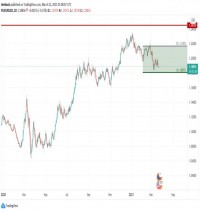|
Opalesque Industry Update - Hedge fund managers are experiencing the ripple effects of new regulations on banks and prime brokers, with hedge funds facing increased trading fees and broader changes to business relationships. These dynamics place additional pressure on margins and are leading managers to seek new growth strategies, according to The evolving dynamics of the hedge fund industry, EY's 2015 Global Hedge Fund and Investor Survey. Regulations such as Basel III and Dodd-Frank have caused banks and their prime brokerage businesses to focus more closely on liquidity, balance sheet capacity and funding, resulting in changing economics for fund managers who finance trades through prime brokers. Twenty-nine percent of respondents said their prime brokers increased fees in the past year, and an additional 22% expect an increase in fees within the next year. Fund managers using strategies such as distressed credit, fixed income and global macro, which can be balance-sheet intensive from the prime brokers' perspective, have been among those who have experienced price increases the most. Respondents now expect price increases and broker limitations to change the way they trade, including moving toward swap-based trade execution and reducing repo financing and overall leverage. Michael Serota, Global Leader, Hedge Fund Services at EY, says, "These dynamics are the newest challenge to an industry that continues to grapple with margin compression, heightened competition for asset growth and ongoing requirements for technology investments. All forms of financing are becoming more expensive for a majority of managers, and these costs have a direct effect on overall trade economics. Investors will be indirectly affected by the increasing costs and will need to rely on communications from the manager to understand the full effect on the fund's performance." Hedge funds expand their prime broker relationships Regulatory changes have altered the traditional business relationship between prime brokers and hedge fund managers. Prime brokers have suggested that hedge fund managers concentrate more business with them, though 60% of managers affected by repricing have in fact added more prime broker relationships. Only 12% of respondents who have experienced repricing reduced their prime broker relationships. Many prime brokers are becoming reluctant to hold cash for hedge funds because of how such balances are classified toward banks' capital reserves under new regulations. Fifty-eight percent of hedge fund managers have moved cash to custodians as a result, while 35% have purchased highly liquid securities as cash alternatives. Natalie Deak Jaros, Americas Co-Leader, Hedge Fund Services at EY, says: "Many hedge fund managers are larger and more complex, with increased financing needs. As many prime brokers have less capacity to offer than in the past, hedge fund managers are increasing the number of relationships they have to reduce counterparty capacity risk. We are also seeing the need for hedge funds to dedicate individuals to manage counterparty risk, collateral and treasury functions as a result of these shifting industry dynamics." Managers seek financing from non-traditional sources Hedge fund managers are beginning to explore non-traditional financing sources outside of prime brokers. Thirteen percent of respondents are seeking or plan to seek financing from non-traditional sources in the next two years, from sources including institutional investors and sovereign wealth funds, custodians, or other hedge funds. Asset growth remains top strategic priority Achieving asset growth to counteract margin pressure is the top strategic priority for 57% of managers surveyed. New growth methods include adding new hedge fund strategies, identifying new investor bases and increasing penetration with existing investors. New product launches, which was the top method for achieving growth in last year's survey, has dropped to less than 20% this year. New products have presented opportunities for managers, but they also have come with challenges, as 24% of managers reported that new products had a negative impact on operating margins. Fiona Carpenter, EMEIA Leader, Hedge Fund Services at EY, says: "As the hedge fund business has evolved, increased competition, as well as heightened demands from investors and regulators alike, has compressed margins via the two-fold squeeze of lower top-line revenues and larger expenses. Growing assets to critical mass within a shorter timeline is critical for managers looking to run profitable organizations." Technology investments are critical for transformational change Respondents plan to allocate 12.4% of their overall expense budgets to major technology expenditures over the next three to five years, similar to the amount budgeted over the past two years, as managers aim to develop robust infrastructures capable of supporting larger and more complex hedge funds. Seventy percent of managers expect to make major technology investments in the next two years, including investment management and trading operations, enterprise infrastructure, and risk management systems. George Saffayeh, Asia-Pacific Leader, Hedge Fund Services at EY, says: "Today's technology environment and the effect it has on the business is rapidly evolving. Managers are investing to develop tools that allow for more seamless front- to back-office data transmission, timelier and customized reporting to various constituents, and to deal with ongoing concerns over cybersecurity. The importance of being strategic with these investments has never been more critical." |
Industry Updates
Hedge funds confront impact of financial market regulations and challenges of evolving prime broker relationships
Tuesday, November 10, 2015
|
|





 RSS
RSS







